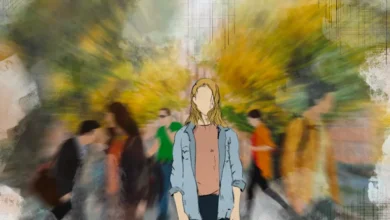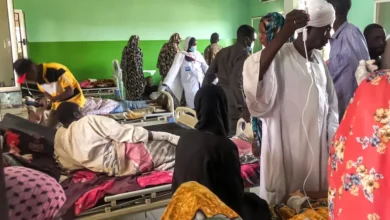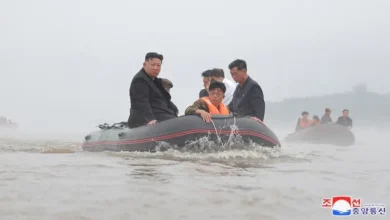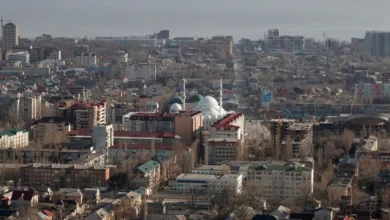The Darien Gap ‘closure’: Border theatre in the jungle
Belén Fernández
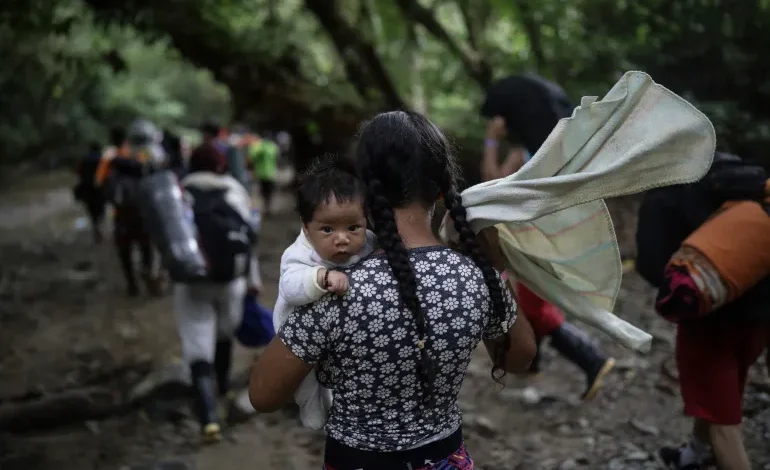
Belén Fernández
In January, just before Donald Trump resumed command of the United States on a bevy of sociopathic promises, incoming US border czar Tom Homan announced that the new administration would be “shutting down the Darien Gap” in the interests of “national security”.
The Darien Gap, of course, is the notorious 106km (66-mile) stretch of roadless territory and treacherous jungle that straddles Panama and Colombia at the crossroads of the Americas. For the past several years, it has served as one of the only available pathways to potential refuge for hundreds of thousands of global have-nots who are essentially criminalised by virtue of their poverty and denied the opportunity to engage in “legal” migration to the US.
In 2023 alone, about 520,000 people crossed the Darien Gap, which left them with thousands of kilometres still to go to the border of the US – the very country responsible for wreaking much of the international political and economic havoc that forces folks to flee their homes in the first place.
In a testament to the inherent deadliness of borders – not to mention of existence in general for the impoverished of the world – countless refuge seekers have ended up unburied corpses in the jungle, denied dignity in death as in life. Lethal obstacles abound, ranging from fierce river currents to steep ravines to attacks by armed assailants to the sheer physical exhaustion that attends days or weeks of trekking through hostile terrain without adequate food or water.
And while literally “shutting down” the Darien Gap is about as feasible as shutting down the Mediterranean Sea or the Sahara Desert, the jungle has become drastically less trafficked in the aftermath of the Trump administration’s machinations to shut down the US border itself, essentially scrapping the whole right to asylum in violation of both international and domestic law.
In March, two months into Trump’s term, Panama’s immigration service registered a mere 194 arrivals from Colombia via the Darien Gap – compared with 36,841 arrivals in March of the previous year. This is no doubt music to the xenophobic ears of the US establishment, whose members delight in eternally bleating about the “immigration crisis”.
However, it does not remotely constitute any sort of solution to the real crisis – which is that, thanks in large part to decades of pernicious US foreign policy, life is simply unliveable in a whole lot of places. And “shutting down” the Darien Gap won’t deter desperate people with nothing to lose from pursuing other perilous paths in the direction of perceived physical and economic safety.
Nor can the enduring psychological impact of the Darien trajectory on the survivors of its horrors be understated. While conducting research for my book The Darien Gap: A Reporter’s Journey through the Deadly Crossroads of the Americas, published this month by Rutgers University Press, I found it next to impossible to speak with anyone who had made the journey without receiving a rundown of all of the bodies they had encountered en route.
In Panama in February 2023, for example, I spoke with a young Venezuelan woman named Guailis, who had spent 10 days crossing the jungle in the rain with her husband and two-year-old son. Among the numerous corpses they stumbled upon was an elderly man curled up under a tree “like he was cold”. Guailis said she had also made the acquaintance of a bereaved Haitian woman whose six-month-old baby had just drowned right before her eyes.
Guailis’s husband, Jesus, meanwhile, had experienced a more intimate interaction with a lifeless body when, tumbling down a formidable hill, he had grabbed onto what he thought was a tree root but turned out to be a human hand protruding from the mud. Recounting the incident to me, Jesus reasoned: “That hand saved my life.”I heard about bloated corpses floating in the river, about a dead woman sprawled in a tent with her two dead newborn twins and about another dead woman with two dead children and a man who had hanged himself nearby – presumably the children’s father.
A Venezuelan woman named Yurbis, part of an extended family of 10 that I spent a good deal of time with in Mexico in late 2023, offered the following calculation regarding the prevalence of bodies in the jungle: “I can say that we have all stepped on dead people.”
For pretty much every step of the way, then, refuge seekers transiting the Darien Gap were reminded of the disconcerting proximity of death – and the negligible value assigned to their own lives in a US-led world order.


